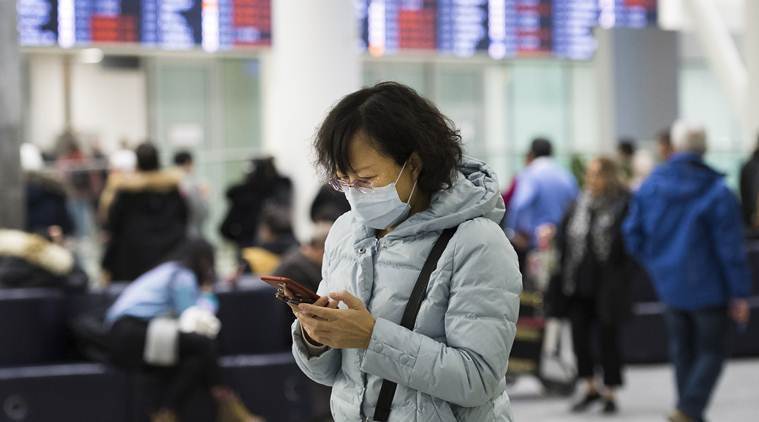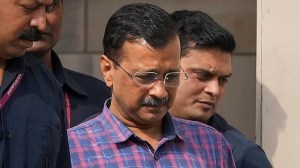- India
- International
The reversal of the great right-ward drift since the 1980s has begun
The corona crisis threatens to write the obituary of global capitalism. It will have a lasting impact on national economic strategies and politics.
 The perception that China, the biggest beneficiary of globalisation, has taken advantage of the West has been reinforced by the corona crisis. (File Photo)
The perception that China, the biggest beneficiary of globalisation, has taken advantage of the West has been reinforced by the corona crisis. (File Photo)
There is a Chinese joke from the mid-1990s about US President Bill Clinton, British Prime Minister Tony Blair, Russian leader Boris Yeltsin and the General Secretary of the Chinese Communist Party, Jiang Zemin driving down a road to arrive at a fork. Clinton turned right without signalling. Blair tagged along. Yeltsin, who was blindly following the Anglos, was not looking for choices. A tentative Jiang looked back to ask his lone passenger, “which way?” Deng Xiaoping, in the back seat, said: “Signal left and turn right.”
The imagined story tells us a lot about global transformation in the last four decades. It was about historic political changes within major economies and between them. China was an integral part of this story. Deng gave a huge booster shot to global capitalism while helping China rapidly elevate its international standing.
This extraordinary transformation was running out of steam in the last few years and the corona crisis threatens to write its obituary. The reversal of the great right-ward drift since the 1980s has begun.
But first to the four men on the road. In the US, Clinton moved the Democratic Party away from its working-class roots and embraced the Reagan revolution — domestic deregulation and free trade. In pushing the party to the right, Clinton ended the political wilderness of the Democrats in America. In Britain, Blair did much the same by rebranding a working-class party as the “New Labour” to end nearly two decades of Tory rule under Margaret Thatcher and John Major. The socialists in France and Europe demurred at the “Anglo-Saxon” capitalist excesses but had no choice to adapt.

As Yeltsin buried the Soviet Union and turned to the Western model, the newly-liberated members of the Warsaw Pact embraced economic openness and joined the political project on European integration. It was Deng, however, who provided the “piece de resistance” of the era by opening up China to Western capital.
After the Tiananmen Square events in 1989, there was a brief moment when China flirted with closing its economy. In his famous “southern tour” in early 1992, Deng ordered renewed economic reform that propelled China political fortunes. Deng was convinced that “leftism” was a bigger danger than “rightism”. But the right turn had to be masked with a left signal in a country that was avowedly communist. So the CCP maintained a relentless emphasis on socialism, even if it was with “Chinese characteristics”. Cynics have named it “red capitalism” or “capitalism with Chinese characteristics”. It did not matter what the CCP called it, but the global consequences were profound.
The new Washington consensus led to booming international trade, super-profits for Western capital, prosperity for China, and benefitted many parts of the developing world, including India. The emergence of the internet economy reinforced the proposition that a world without borders was just around the corner. But the “losers” from globalisation, especially in the West, showed up to ruin the party.
Opinion | Post Covid-19, India should reduce dependence on global markets
In Britain, the Brexiteers successfully mobilised against the integration with Europe in the 2016 referendum. In the US, Trump whipped up passions on trade to squeak through to White House in the 2016 elections. Trump argued that globalists had outsourced American jobs to China and vowed to bring them back. Trump’s success has turned the rich men’s Republican Party into a champion of the working people fighting against the inequities perpetrated by a globalist elite. In politics, surprises never cease.
Boris Johnson won a massive mandate in 2019 by reaching out to the working class and breaching the Labour’s “red wall” in the north. Both Johnson and Trump are now actively undoing the Thatcher-Reagan consensus on neoliberal economics. Some of the core elements of that era — free trade, fiscal prudence, downsizing the state, marginalisation of the working class and partnership with China — are all unravelling today.
The uncritical support for free trade is being replaced by arguments about “fair trade”. London and Washington are doling out large sums for protecting the paychecks of the working people as the economy undergoes a massive contraction. The Republicans who had voted against bailing out Wall Street during the 2008 financial crisis are now letting trillions of dollars flow out of the Congress.
Meanwhile, the presumptive nominee of the Democratic Party, Joe Biden, is pivoting to the left on economic issues, partly in response to the pressure from Bernie Sanders, who has suspended his campaign but wants a big say in the party’s platform for elections this year.
Opinion | Management of lockdown, its aftermath, will shape balance of power between Centre and states
We do not know if Biden is merely signalling left for electoral purposes or genuinely reclaiming the old working-class base of the Democratic Party. Democrats are also under pressure to respond to Trump’s charges that the party and Biden are complicit in letting China gain the economic upper hand over the US through free trade and refusing to see the emerging political challenge from Beijing.
As Trump ties China, globalism, and Beijing’s responsibility for the pandemic with Biden and the Democrats, there are growing prospects for the decoupling of “Chimerica” that emerged in the 1990s. Democrats can attack Trump as fiercely as they want to, but they can’t afford to be seen as weak on China.
The Western imperative to separate from China has been reinforced by Xi Jinping’s abandonment of the Deng line on keeping an open economy and a low international profile. The perception that China, the biggest beneficiary of globalisation, has taken advantage of the West has been reinforced by the corona crisis. If the rightward shift had transformed the global political economy and international affairs in the last four decades, the drift to the left — de-globalisation, big government, the focus on redressing inequality and new political weight of the working class — is likely to have a powerful and lasting impact on national economic strategies everywhere and the politics among nations.
This article first appeared in the print edition on April 21, 2020 under the title ‘The drift to the left’. The writer is director, Institute of South Asian Studies, National University of Singapore and contributing editor on international affairs for The Indian Express.
EXPRESS OPINION
Must Read
More Explained
Apr 23: Latest News
- 01
- 02
- 03
- 04
- 05







































